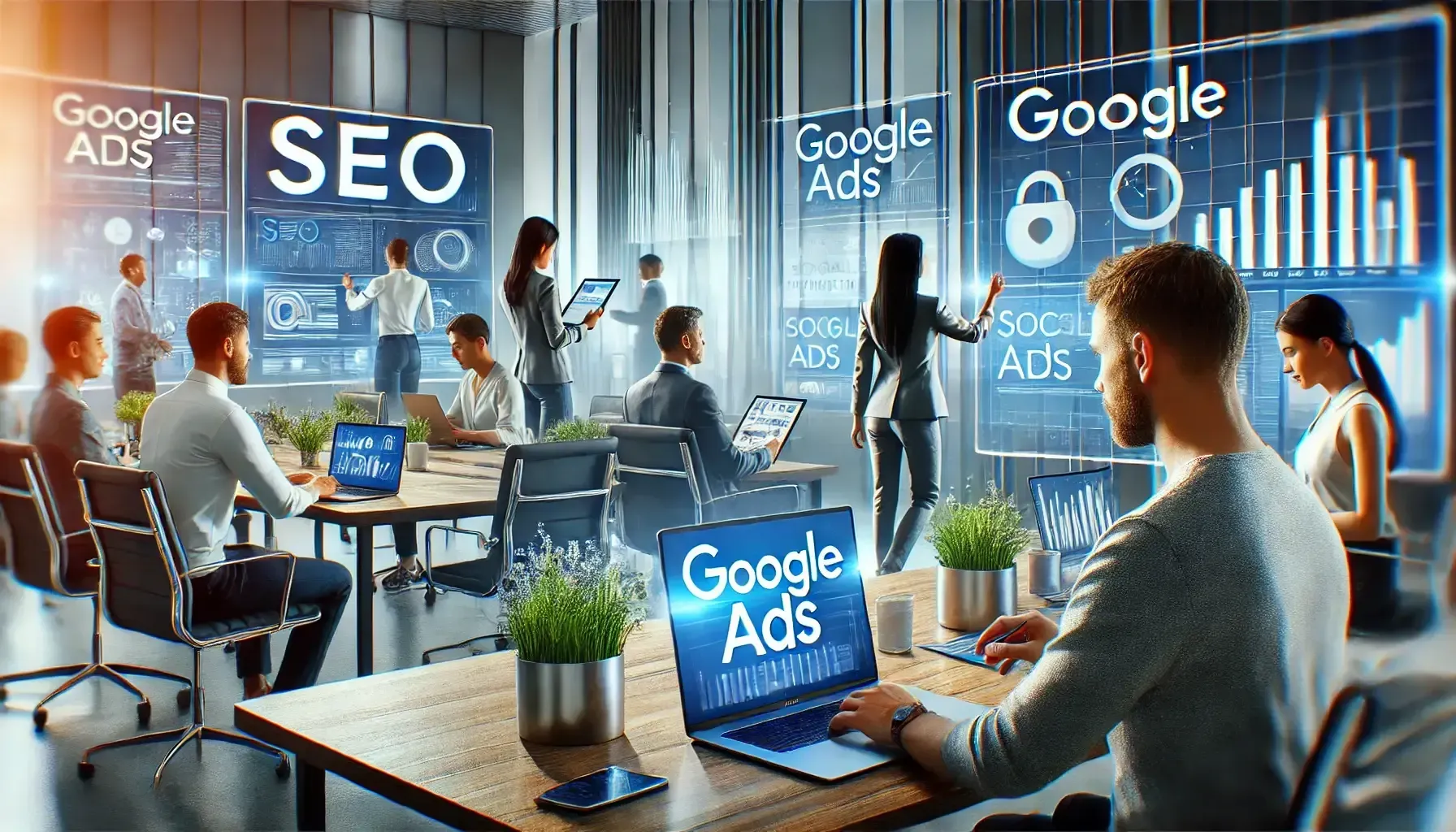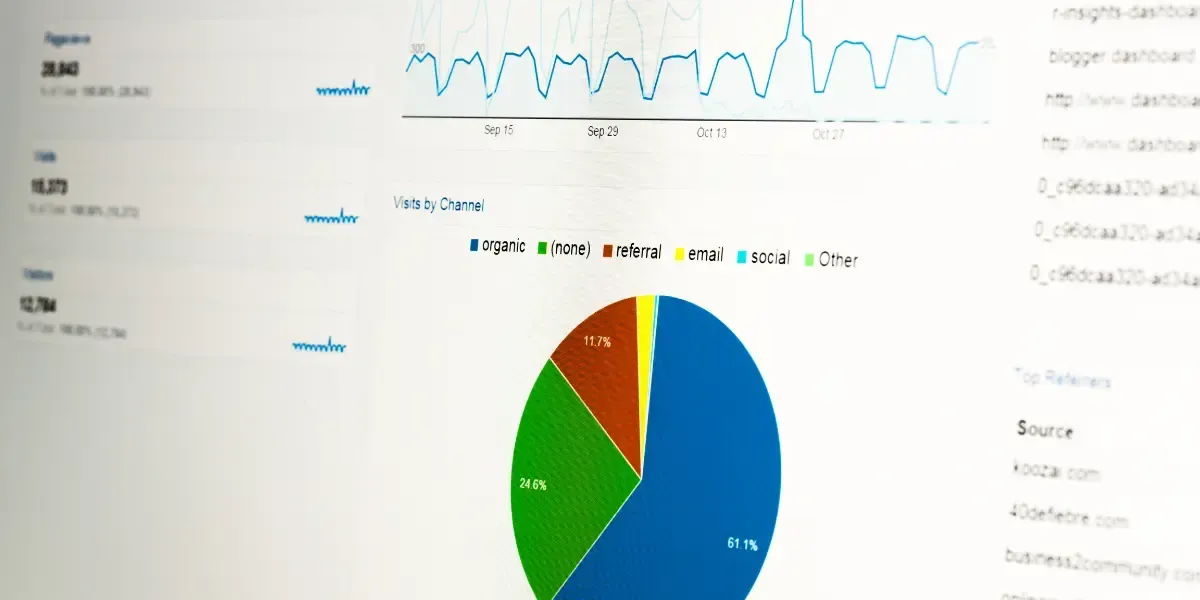SEO Competition Growing Across New Zealand Ppc Vs Organic

A quick glance at your Google Analytics will show you just what channel your customers used to access and purchase your products. You might think, ‘perfect, now I can stop every other advertising and marketing method and just focus on the one that’s performing the best!’
Contents
- PPC vs. Organic SEO
- Does Competition Make a Difference?
- Using Google My Business
- Why Use Google At All?
Listen to this article
You then get to benefit from organic growth, often with the help of digital marketing experts.
When you hear the word ‘free’, your ears probably perk up – and so they should. Free traffic to your website with the possibility of new customers? What a great deal! And it is – but you have to be in it for the long game. SEO, as you will quickly learn, is a marathon, not a sprint, that takes a combination of long term effort and smarts to get right.
Which is where PPC comes in.
PPC vs. Organic SEO
After you have optimised your website to ensure you’re in the best position to achieve organic growth, there can be a waiting period. But suppose you want to benefit from near-immediate exposure. In that case, you may see the value in pay-per-click advertising (PPC).
PPC is a Google offering that allows you to create a search campaign ad that appears in Google when selected search terms are used. When someone searches for those keywords and your business pops up, they can click on your ad to head to your website. You are then charged for that click. You don’t have to pay for the ad when it is not clicked.
Why on earth would someone choose to pay for PPC advertising when organic SEO is free? Because PPC advertising can bridge the gap immediately, while your organic SEO works its magic in the background.
For example, you may have just launched a brand new website, which will take 3-6 months to rank well in the organic search results. In this instance, we’d recommend using Google Ads to provide your business with immediate clicks, leads and sales while the SEO rankings build.
Eventually, your SEO can begin to offer better results than your PPC campaign. You can then choose to end that campaign or keep it ticking away in the background if it’s delivering the results you desire. We recommend using a combination of both techniques.
Topic comparison
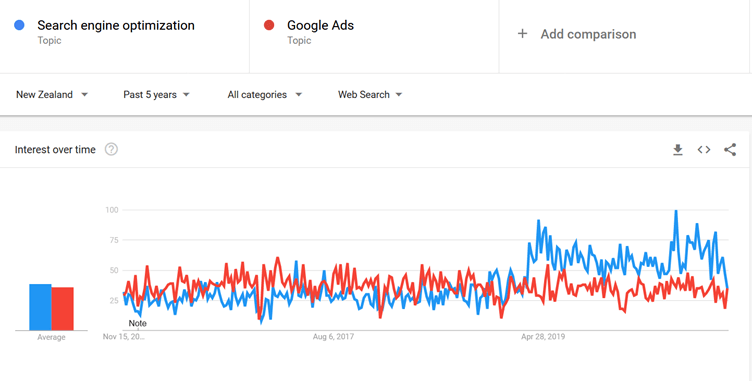
Search term comparison
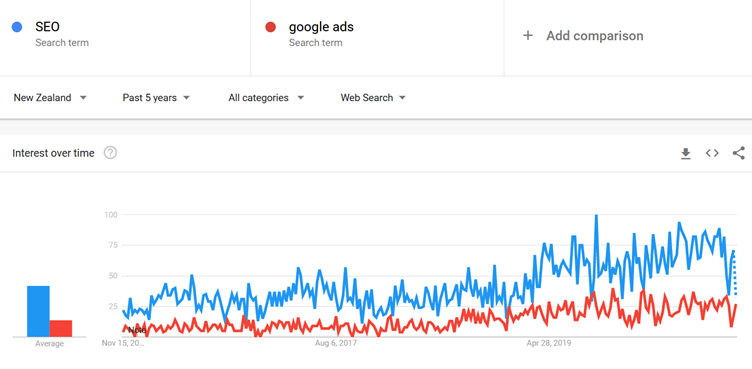
These graphics offer a comparison of Google Ads vs. SEO. As you can see, the two start relatively even in results. But the more “seasoned” the SEO becomes, the more valuable it becomes for lead generation.
Does Competition Make a Difference?
The complicated part about SEO and PPC is that there is no blanket rule for how they will work for you. Each industry is different, and, as the graphic below shows, even each part of New Zealand is different.
That’s why it can be a good idea to leave your PPC ads and organic SEO growth in the capable hands of a digital marketing team. They have the best tools and skills to make sure they use an approach that’s as unique as your business for the best results. Because, yes, competition does make a difference.
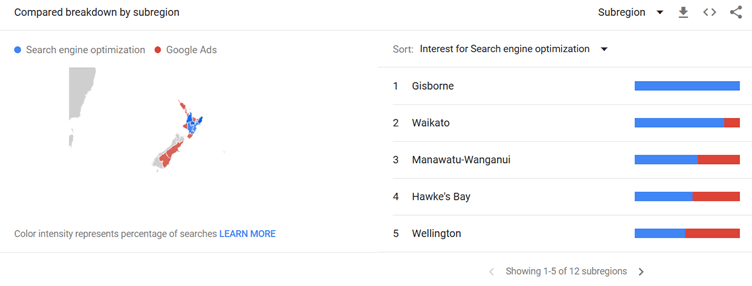
In this graphic, you will see a breakdown by region of the use of Google ads (PPC) and SEO. From this, you will see that with more competition in the North Island, businesses are using a mixture of SEO and PPC to achieve desirable results for their business.
Given that three in four New Zealanders live in the North Island, it makes sense for there to be more businesses to cater to those people. By default, that can mean more competition.
The hospitality industry is a fine example of this competition. In 2017, there were over 17,000 hospitality businesses in New Zealand. So, how could you make yours stand out from the crowd? Well, one popular way is digital marketing with PPC and SEO.
Using Google My Business
One way to combat growing SEO competition is by making use of Google My Business and Google Maps. Google My Business can work hand in hand with your current and future SEO and PPC techniques.
This free tool allows you to create a business profile that integrates with Google’s search results and maps. On it, you can list your business name, photos of your business (including products and services), along with phone numbers, websites, and addresses. Essentially, this profile can include anything that assists in making sure your business is as easy to learn more about as possible.
The beauty of Google My Business, too, is that it offers insights into how your customers are connecting with you so you can find out what’s working and what isn’t.
You can see how many people used the ‘call’ function, how many website clicks, the number of direction requests, how many people followed, and even how many people made bookings through your Google My Business Profile.
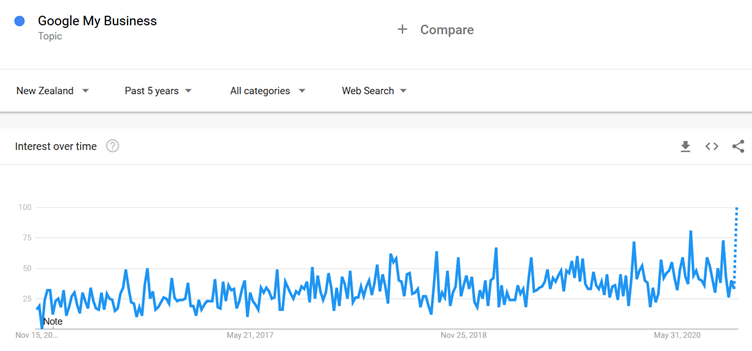
This graphic shows the popularity of Google My Business and its projected growth past 2020.
Setting Up Google My Business
Not every business owner is tech-savvy, and that’s okay. You will be pleased to know that setting up your profile takes just a few steps. Alternatively, a local SEO company will be able to assist with your profile’s creation and other local SEO techniques.
- Sign in to your Google Account or create one using your business email domain.
- Enter your business address and position the marker on your location.
- Choose how to display your business on Google Maps – this can include whether or not you serve customers at your address or whether you deliver your goods and services.
- Choose your business category.
- Enter your phone number and/or website URL.
- Verify your account.
Why Use Google At All?
All this talk of Google Pay-Per-Click ads and organic SEO, you may be wondering why Google is an ideal option when there are so many other platforms out there.
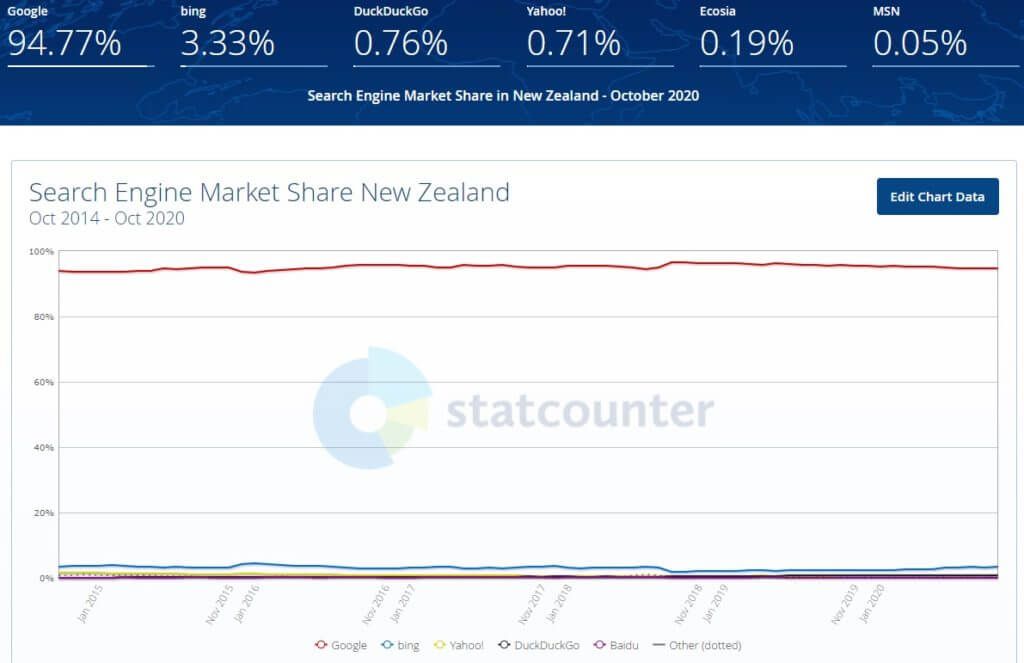
Some other platforms can indeed serve their purpose for your business. Take Bing, for example. It only makes up around six percent of the market share. Still, it can suit some companies targeting the very New Zealanders who rely on this search engine over Google.
In saying that, Google makes up around 90 percent of the market share. It’s hard to look past that statistic when you’re trying to boost your business image.
Is it Time to Act?
With so much competition throughout New Zealand, there’s every reason to tap into the available resources to improve your online presence. Using a combination of search engine optimisation for organic growth and pay-per-click advertising, you may experience growth that traditional advertising methods have failed to deliver.
FAQ
Are there other platforms besides Google for advertising?
Yes, there are other platforms for advertising, such as Bing, but Google has the largest market share, making it a popular choice for businesses looking to boost their online presence.
Should I use both PPC and SEO techniques?
Using both PPC and SEO techniques can be beneficial as they serve different purposes: PPC can provide immediate exposure, while SEO works in the background to generate long-term organic growth.
Digital Blog





